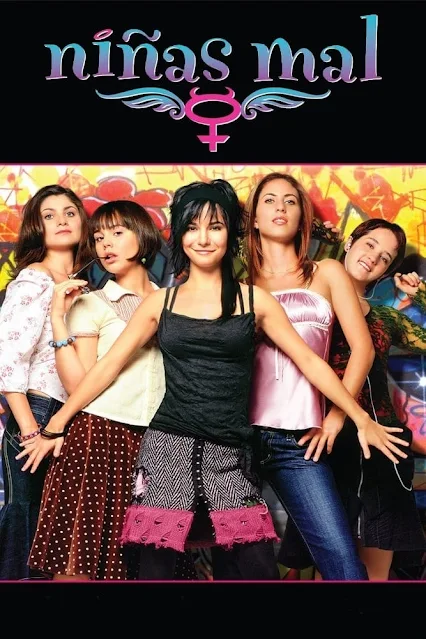Charm School is a 2007 Mexican comedy film directed by Fernando Sariñana that explores themes of self-discovery and societal expectations through the lens of a charm school for young women. The story centers around Adela, played by Martha Higareda, a rebellious teenager with tattoos, piercings, and a recent arrest. Concerned that her daughter's behavior might jeopardize his political aspirations to become the governor of Mexico City (CDMX), Adela's father enrolls her in the last remaining charm school aimed at transforming unruly girls into refined young ladies.
As the narrative unfolds, Adela navigates the challenges of fitting into the charm school's strict environment, which is filled with other girls who also struggle with their identities and societal pressures. The film blends humor and drama as it highlights the girls' interactions, personal growth, and the often absurd nature of the charm school experience. Adela's journey is marked by her defiance against the school's rigid rules while simultaneously confronting her own insecurities and desires.
The film features a notable cast, including Camila Sodi and Ximena Sariñana, who contribute to the dynamic portrayal of young women grappling with their identities. Despite its comedic elements, Charm School addresses serious themes such as family expectations, self-acceptance, and the societal pressures faced by women in contemporary Mexico.
Upon its release, Charm School received mixed reviews from critics, with some praising its lighthearted approach to serious issues while others criticized it for relying on clichés and predictable plot lines. The film has a rating of 5.3/10 on IMDb, indicating a lukewarm reception among viewers. Nevertheless, it has found an audience for its relatable characters and humorous take on the challenges faced by young women in a society that often imposes rigid standards of behavior.
In summary, Charm School offers a comedic yet insightful look at the struggles of adolescence and self-identity within a framework of societal expectations, making it a relevant film for young audiences navigating similar challenges.

No comments:
Post a Comment